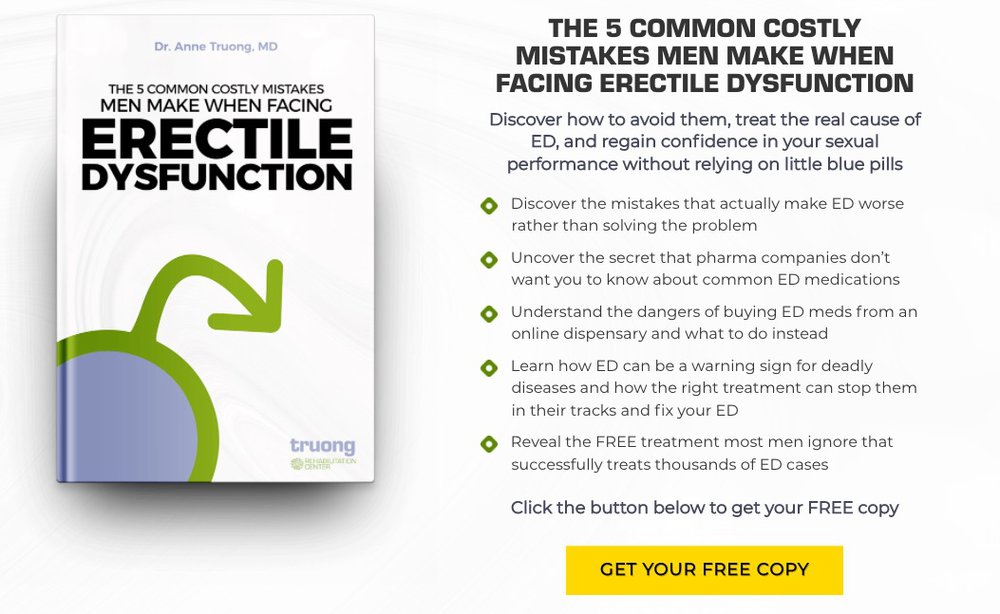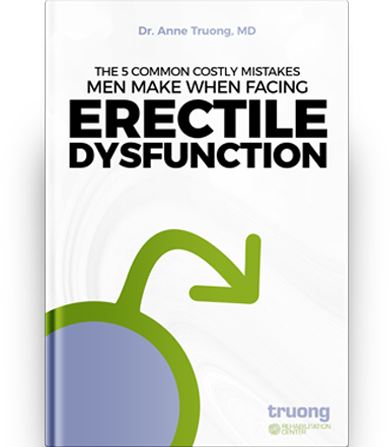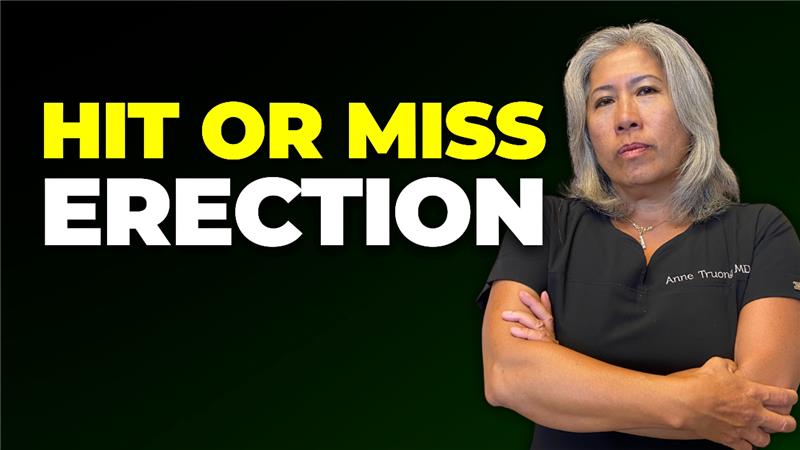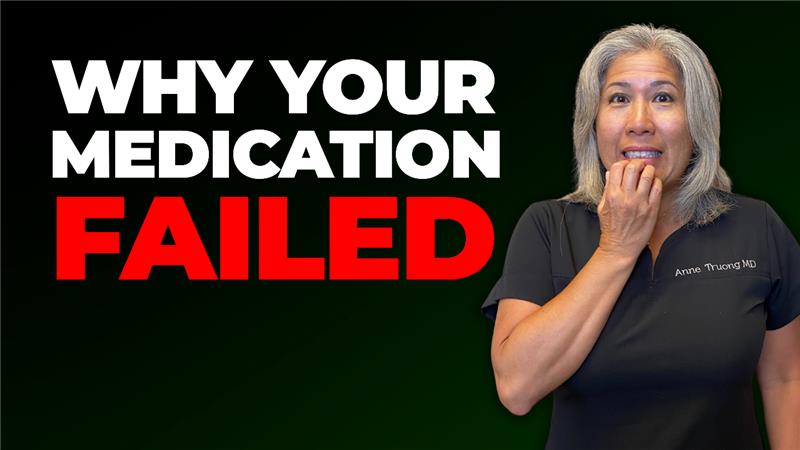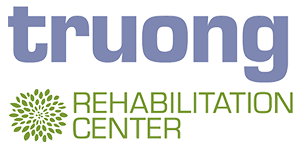Intimacy is ever-evolving as biological changes for men and women. These changes can lead to a lack of interest, enjoyment, or even physical discomfort. ED in Relationships can cause about 30% of marriages end from sexual discord.
The ability to desire, engage in, and enjoy physical intimacy relates directly to our emotional and physiological health. Unfortunately, as we age, many women become detached from their sexuality. In this episode I will talk with Dr. Delucia about changes in a woman after 35 and how it impacts her partner.
- How a woman sexual challenges can impact her partner’s sexual challenge such as ED
- The anatomy and sexual function with aging for a man and woman
- The ways to maintain the best intimate life for men and women
ED in Relationships Episode Table Of Contents
- Episode Video
- Introducing Dr. Carolyn Delucia
- How Intimate Health For Woman And Men Is Related
- The Secret Orchid Approach
- Relieve Sexual Discomfort
- Restoring sexual function and enjoyment
- Rebuild: The Emsella Chair
- The Reinforce Phase
- Dr. Lucia’s Why
- More About Our Guest Carolyn Delucia
- Episode Links and Resources
ED In Relationships Episode Video
Introducing Dr. Carolyn Delucia
Anne: Today I am so excited to have one of my great friend who I've known for many years, Dr. Carolyn Delucia. My goodness, she has accolades that is like a footlong, and I'm not doing her justice with this introduction, but I'm just going to briefly highlight her accomplishment.
She is a board certified OB-GYN doctor of 30 years' experience. She now specializes in female intimate health. She's an author, an international keynote speaker, an influencer, and she is everywhere, and I mean, everywhere. Everywhere I turn, everywhere I look, she is on some type of media. In fact, she recently wrote a chapter in one of Tony Robbin, new book called Longevity. It is now a number one bestseller on Amazon. She wrote about female intimate health.
Along with her 30 years' experience of treating thousands of patients, she created a combination of innovative therapy with personalized technology for female intimate wellness. Her office is in New York City and in suburban New Jersey. She is not only a talented doctor, but she is a lovely person inside out. I am just so honored to have her here with us on today's show.
Carolyn: Thank you so much, Anne, for having me. It's always so much fun to be with you. We have had some great times over the years, so I'm thrilled to be chatting with you.
How Intimate Health For Woman And Men Is Related

Anne: Well, I am thrilled to be talking to you because today we're going to talk about female intimate health and how it ties into men intimate health as well. A lot of time when you're in a relationship, you know what's going on with you, but do you really know what's going on with the opposite sex and what changes they're going through as you age? We're going to focus on kind of like what men know.
How much do you really know about your partner female sexual health?
How much do you know about your partner female sexual health and how much does the woman know about their partner sexual health and what they're going through? What I find when treating men sexual health is that once they find out that things are not working well in the bedroom, they don't talk to their partner as the first line of communication.
In fact, they tell me that that's the last person they want to talk to. In fact, the first person that they're going to talk to is Mr. Google on their internet, you know? Then when you go to Mr. Google, they're going to find out, "Oh, take this ED medication." Then they just start going down the black rabbit hole. The black hole is what I call those medication, because it's just a Band-Aid.
We're trying to really educate men and women that are in a relationship that is not in the best intimate health as it used to be when they are first together and say, "Hey, you know what? If your sex life or bedroom performance is not where it used to be, let's take a step back, have an open communication and find out what is going on and try to treat the source of the problem instead of medicating the problem."
That's where we're going to come from for today's episode on ED in relationships, is, what's going on with the female as they age? Let's first start out. What's the basic anatomy and sexual function in the female as she ages?
Communication Is Key
Carolyn: I couldn't agree more. The most, most important aspect in any relationship is communication. It's communication. You've got to speak to your partner. That being said, I know it takes a lot of guts. I've been there. With certain partners, it's more embarrassing to talk about than just to kind of brush it under the rug and let the whole relationship deteriorate, which is the saddest thing. Unfortunately, as life goes on, not being intimate can be a huge wedge in a relationship that then causes erosion, resentment, separation and divorce. I'm telling you as a … I'm going to be 60 years old this year.
Anne: You are a hot 60 years old, by the way. You do not look your age at all. Okay? Listeners, she is still single, right? Yeah?
Carolyn: Still single. It is just a sad truth, but finding a gentleman who can be open and honest and willing to be … and women must be willing and active participants in intimacy as well. I'm a gynecologist. Sitting on that little stool that I sit on all day chatting to my patients, my women, I often will ask, "How are things going in the bedroom?" Or, "How are things going with sex?"
The Age Factor
I ask the question, depending on the relationship and comfort level I have with the patient and vice versa. When I ask that question more times than not my patient will respond with, "Oh, we don't do that anymore." I'm like, "What are you talking about? Why? Why are you letting this intimacy go to the wayside?" Very often they will say, "Well, I'm very uncomfortable with penetration. It hurts me." For the men listening, when a woman goes through menopause, it will not be comfortable unless they're being appropriately treated. Vaginal dryness is excruciating for the woman. When you're starting to use a ton of lube from the bedside table, you know she's in pain. Keep that in mind. It's not lubricate-
Anne: When does that usually start? When does that vaginal dryness, these symptoms usually start?
Carolyn: In a year or two following their last menstrual period. Once you're in menopause, this is the one and only symptom that gets worse over time. The other symptoms like hot flashes during the day or those night sweats that women experience, get better over time. Vaginal dryness and lack of ability to stretch that occurs with menopause, just gets worse and worse to the point where it feels like a round hairbrush instead of male anatomy and it's horrendous. When that first happened to me, it was like a light switch. One day sex was comfortable, literally the next day it was intolerable. It was overnight and it was not possible to tolerate penetration. Something needs to be done.
Anne: When does this usually happen? Like what age is normally when women start to feel this?
Carolyn: Between 50/55. Yep. Men at this age often will begin to have some erectile dysfunction. Sometimes if the couple's on the same page and neither one seems slighted by the lack of intimacy, that's fine. No one's telling you have to have sex if you find other ways to communicate, to connect and stay intimate. Intimate doesn't always need to be sex. That being said, sex is the most beautiful form of intimacy. It's the most in-depth way to connect with your loved one. That's the most important thing to discuss today and how to maintain that ability to really be enjoying the senior years of our lives that we have no children at home. We've done that. We have time to really appreciate each other. Instead of looking at each other and saying, "Who are you? Don't touch me and go elsewhere."
Anne: Right. That's the sad part. That is the sad part, is that you are in your 50s. The children are grown. You're at a financially, probably stable situation than you were when you first got married. It's almost like a second honeymoon. Then lo and behold, oh, I'm not enjoying sex as much.
The woman's having vaginal dryness and the man may be experiencing some signs of ED.
In fact, studies have shown that 67% of men do not even know they have ED. They may not even realize that they're having ED in relationships issues and the woman may not even realize she's having menopause symptoms. Then they're like, "Well …" I see many of my patient that are men, they would say, "Well, she's not interested at all. She just tells me, 'I've done my job. You do what you need to do.'"
I want to enlighten our listeners on what is going on with her at this time. If she's having that vaginal dryness and discomfort, what's her thought? Does she think there's something going on, or is she seeking help or what's your experience?
Carolyn: Well, so many women normalize the conditions and saying, "Oh, well, this is what happens with age. I guess I lose my interest. I don't even care about having sex anymore. It hurts. I can't reach climax anymore, or it's really hard and it takes a long time, I guess I'm done." They accept it without realizing that there are many, many, many treatments. You and I both are treating our patients with these new technologies that really make a life-changing effect. I mean, that's why I wrote my first little book.
It's kind of a glorified pamphlet, I like to say. It's only about a hundred pages. It's a quick read and it explains what's going on with women and what's available out there. It's called “Ultimate Intimacy: The revolutionary science of female intimate health”.
One of the first pages is this is the only picture in the book. Yes, that's a vulva. That's the external female genitalia. I try to actually show what is what, because women don't even know their own anatomy. I could tell you that most women cannot pick out their vagina from a lineup. If there were pictures taken of a bunch of vaginas, they can't say, "Oh, that's me." We really should be able to. We should know our own bodies so that we can help our partners please us appropriately. I'm going to point out one more thing. I'm wearing red to match my little model of, what is this? Yep. It's the clitoris. Now-
Anne: Now, men pay attention to this. It doesn't look like just a little knob.
Carolyn: That's right. This is all we see. This little tip, and that is of course, where women do have, are you ready for this? 8,000 nerve endings in the tip of our clitoris, where men have 4,000 nerve endings in the head of their penis and you guys are all proud of all that junk.
Now, we love your junk. Don't misunderstand, but we do want you to grasp our … and literally our anatomy.
Besides the little piece you can see, underneath the skin on the sides of the labia are our crura. This is synonymous with the whole length of the penis, the cavernosa of the penis. This area in women is also very sensitive, and in the middle here is where the vagina would be. Penetration does stretch all of these areas and helps with excitation or stimulation for a woman's pleasure. Women should know, and men should know that there's more than meets the eye.
Anne: Absolutely. Also, the clitoris is the only organ for pleasure, right? It has no other function than giving the woman pleasure versus the man's penis, it has other function than just for sexual activity. It's used for urination. It's used for semen, for ejaculation. There's three different function versus the clitoris is for the female pleasure, but oftentimes she doesn't know that actually. She just thinks it's probably just a little knob that you see. I can tell you, when I see some of my female patient, they do not even know where the clitoris is. How often do you see that?
Carolyn: Very often. As a fact, one patient says, "No. That's where I urinate from." I'm like, "Oh, no, no, no, dear. That's your clitoris. There's no opening here. The opening is down here." Yes, it is remarkable. That's why I emphasize both men and women should become more well-versed on the female anatomy because that will help, and from that point on how to maintain the health of that anatomy, which is blood flow. The key to everything in intimate health is blood flow.
To the penis or the vagina, or the clitoris or the nipples, or any place that we have arousal or an erogenous zone is blood flow. I loved your series on Instagram about male erogenous zones. That was fun. I was taking notes, "Ooh, what is it today? I got to write that down."
Anne: I started on day one to day 14. Oh, you should do one for the female region for the next 14 days. Carolyn: Yeah. Yeah. Yeah. I should. That would be cute.
Anne: Yeah. I'm sure there'll be troves of treasure that you can find out. In fact, I think there's 33 region from head to toe that are the erogenous zone that we know about, but I'm sure there's probably more as well.
Signs and Symptoms In Females
Anne: Talk about some signs and symptoms of impact of a compromised sexual function in a female.
Carolyn: Okay. I've hit a few of them already. We've hit vaginal dryness and how that occurs with menopause. But even before menopause, there can be sexual dysfunction in women. That will incorporate an inability to be aroused, an inability to achieve orgasm. These are loss of libido.
All of these changes are categorized in different definitions in medicine, different diagnoses, and they all need to be addressed. There are women in their 20s who have never been able to experience an orgasm. That is something that's quite frustrating, not only for the woman, but for her partners, because they really do want to please us as we know, and thank you men for that. Yet, this poor woman cannot respond despite her efforts. That can be addressed.
Addressing Blood Flow Related Issues
Once again, blood flow. Blood flow innervation, nerves, can be stimulated. We can do that with regenerative procedures using PRP, as you well know. That's the elixir of life, the good old O shot and P shot developed and trademarked by Dr. Charles Runels. These procedures are remarkable in their ability to improve natural blood flow and ability to have an orgasm.
Anne: Absolutely. We both enjoy in working with our patient in restoring natural blood flow to the sexual organ, and as you mentioned, as you get to … Even it starts early, at probably 35 and getting worse in the 50s, that even for men and women, just the sensation is decreased and the libido is decreased. And that is definitely a “ED in relationships” factor.
Learning About Your Anatomy
But I want to get back a little bit and ask. For men, their penis and sexual organ's right there. They use it for urination. They see it every day and they kind of know, hey, it's not working the same as it used to be when I was in their 30s, but they can physically see and feel it.
For a woman is a little bit more ambiguous. You don't touch it down there. You don't hold it when you urinate and you don't see it. The question I want to ask, how does a woman know that … And you and I are older, but maybe the new generation, how does she know that she's supposed to have an orgasm and what is an orgasm like as she grows up? What are your thoughts on that?
Carolyn: Well, I think that that's a kind of self-exploration type of situation. Nowadays, golly, these kids are Google maniacs. As you mentioned, Dr. Google will certainly explain what's going on. Young ladies are exploring with natural sense of masturbation, which is not a bad word and they're not going to go blind. I think that culturally we've gotten away from the taboos of loving one's self or self-pleasure.
Learning about your anatomy and feeling that reach of extent of pleasure is something very natural in both men and women. When it comes to when that's changing, all of a sudden, whether you're on your own or with a partner, reaching that level of excitation and climax becomes very different, difficult, and time-consuming. This can happen at any age.
It's not only when we lose our hormones and our menopause. The way it felt to me when this was happening, it was like rubbing my forehead. There was no sensation whatsoever and very disappointing. Again, being able to increase blood flow and maintain the hormonal milieu is critical.
Aging and Hormones
As you and I both know, aging happens when we lose our hormones. It really occurs pretty rapidly when we have complete cessation of the function of our ovaries, which is what I wrote in Tony Robbins' book, which just came out this week. This is a book on longevity, and I wrote the chapter along with Dr. Garrison, who's a PhD doing research on why ovaries fail in the first place.
Our approach was to really emphasize that aging is simultaneously occurring with the failure of our ovaries, which are our female gonads, much like the male testes. Losing estrogen, progesterone and testosterone in a woman is what causes that exponential progress in aging and illness.
What people have to realize, both men and women, you know this, Anne, is that without our hormones, we are more likely to develop disease.
That includes Alzheimer's, diabetes, heart disease, stroke, brain fog, and all the way down to erectile dysfunction and orgasmic dysfunction in women. Replacing those hormones is absolutely critical.
Anne: Absolutely. Oftentimes it actually unnoticed because it actually starts as early as the mid-30s. We know that men and women in their 50s, at least for men, the number one killer for men is heart attack and actually, so is women.
Get those hormones replaced if you're starting to have symptoms of menopause or even andropause, because it could be changing your quality of life, but could also save your life because it actually is preventative for heart health, and not just for your sex life alone.
The Secret Orchid Approach

When it comes to ED in relationships, I want to kind of dive into your secret orchid approach. I love that name by the way. Really love the orchid. I love the smell of orchid flower and the secret orchid is such a mystery. It's really personify what your approach is. The way your approach at things, it's kind of like the similar pathway I approach with men's sexual in using a regenerative therapy, such as platelet-rich plasma to increase blood flow as well as technology. Yeah. I use shockwave and laser. You do the same thing as well in approaching the root cause of the problem of the blood flow problem and also addressing the emotional side as well.
Dr. Delucia’s Secret Orchid program for women:
- Relieve intimate discomfort
- Restore sexual function and enjoyment
- Rebuild the pelvic floor
- Reinforce sexual confidence
With your secret orchid approach, you have the four different phases. I love that because it's not just, "Oh, okay, come here." I see some clinic is just one modality approach. Shockwave only, boom. Okay. That's all you're going to get. Or just one treatment approach of, "Okay. Here's hormone. All right. That's it."
Our approach is multi-modality. You're looking at the hormone. You're looking at the physical changes, restoring physiology and functionality to the organs again. Then working on the emotional connection to the physical part, because the brain is your larger sexual organ. When I read that, I'm like, "Oh my God, that makes so much sense." Because everything processes through here. If thing doesn't go well up here, nothing going to go down below the belt, right? Yeah. Nothing's going to go below, no matter how many medication you take, no matter how many Viagra or Cialis you take, if things doesn't get processed down here, nothing going to go down below as well. That's for both men and women.
We live in a time right now of just fast-paced and multi multitasks and we just don't have enough time in the day to really make time for intimate health. Both you and I know how important that is because it's not only time for sex, it's really time for your health, but there are multiple health benefits to intimacy as well too, along with the emotional attachment.
Relieve Sexual Discomfort

Your secret orchid approach, the first phase is relief intimate discomfort. Can you talk about that more?
Addressing issues that could be causing hesitation to be intimate
Carolyn: In that area, we talk about relief of issues that could be causing hesitation to be intimate and an active participant in that sex. What can we do to improve the discomfort or pain?
Vaginismus
Not only in menopause, there are conditions called vaginismus, which is an involuntary spasm of the muscles of the pelvic floor, where they just go rock hard and it's like hitting a stone wall. Penetration becomes impossible. That is often in women in their 20s and 30s. This can be treated with Botox. Could you imagine? It usually takes one treatment of Botox to relax those muscles, let them forget about going into spasm. The woman realizes that penetration doesn't hurt and then that involuntary spasm can go away and intimacy may be restored.
Anne: Then afterward, put a little bit in the face as well. Botox is not only for the face, right? You put into the muscle of the vagina. How good is that? A little bit down there and a little bit up in the face to get rid of those wrinkles. I'm glad you mentioned that. I didn't think about Botox. What other things that … The signs and an impact of that as well?
Vaginal dryness
Carolyn: Yes. Yeah. There's of course vaginal dryness, lack of lubrication, which once again can be due to birth control pills. It's not only menopause. What can we do to enrich that blood flow to the vagina to make intimacy more comfortable? And-
Anne: You're saying that birth control pills can actually affect vaginal moisture?
Carolyn: That's correct. Yes, because it's a pseudo pregnancy state and it's altering the natural flow of our hormones and it can cause vaginal dryness, I've seen it more times than I wish to mention. These procedures we can do such as laser treatments of the full length of the vagina, painlessly by the way. None of these procedures are uncomfortable.
If I had to torture women all day, I just couldn't do it. You'd have to put me in a padded cell. These are painless procedures and you can use a laser. You can use radiofrequency. Radiofrequency is less aggressive than laser, but extremely effective, painless, no downtime. Mind you, women and gentlemen, a woman can have that treatment during the day at lunchtime and come home and be sexually active immediately. There's no downtime. Very often following a radiofrequency procedure, it is really more exciting because there's been more increase in the blood flow and it's a wonderful sensation.
Radiofrequency treatments have gotten down to eight minutes long, Anne. I just finished the trial on a new device. It's called M Femme 360, 8 minutes long and so effective and changing lives once again, and eight minutes.
Anne: What does it do? Does it relieve the tension in the vaginal muscle?
Carolyn: It's literally penetrating. It's monopolar radiofrequency, which means that it is penetrating at the depth of about one centimeter or half an inch. It's hitting an area of our cells called the lamina propria, which is below the dermis. It's where we have cells that create collagen and elastin, fine nerve endings, as well as blood flow. All of those areas are activated by the radiofrequency and improve the elasticity of the vaginal tissues.
In women who have had many babies vaginally, sometimes there's what we call laxity. Laxity is a weakness of the walls. Before a woman has a baby, the vagina's a tunnel. It's a cylinder. Following childbirth, it kind of becomes a square with all four walls falling in. The top wall is the bladder. The bottom floor is our rectum. The side walls just become lax and therefore penetration doesn't feel the same, very often for the woman as well as for the man. When we are trying to aid in this situation, we're trying to take this overstretched rubber band and bring it back to a new rubber band so that it can accommodate and attach and basically improve friction with that intimate connection.
Relief from the O-Shot
Anne: Well, very well said. I'm glad you describe what happened to the female with childbirth. I, myself, after have having two children have that laxity and I had the radiofrequency treatment as well as the O shot. That's what actually got me into the intimate health world with Charles Runels. That was in 2014 also. We both came to the injunction around the same time.
In fact, I was my first O shot patient. I had the O shot first and I'm like, "Oh." I became a believer myself. I'm like, "Oh my God." You know? I was at that time, like in my mid-40s at that time and having these issues, but I was like this close to having bladder surgery because I was having urinary stress incontinence every time I had tried to exercise. One of my urologist friends said, "Oh, you need a bladder suspension. That's the only solution."
One of my friends, she's an OB-GYN said, "There's a new procedure called O shot. I just learned it from Dr. Charles Runels. You should go check it out. Let's go learn from him." I'm like, "Oh my God, putting a needle down in my private area. That sounds painful." But when I was there and learning about the procedure and having it myself, I'm like, "Oh, this is nothing." You don't feel anything at all. Since then, I've been having an O shot procedure once a year by one of our colleague, Dr. Shelley Glover. I hope you're watching this. Our clubhouse group. Yeah. Do you get an O shot every year too?
Carolyn: Oh yes, Anne. A matter of fact, this year I was so desperate. I did my own. Don't tell anybody. Oh, I just told the world.
Anne: Oh my God. You are just amazing. I don't know how you would do that, but I remember you did say that. I'm like, "You girl, you're in New Jersey. You're not that far from me. Just please come down here. I'll do one for you." Because I can see you're like this. You're like … have to twist your body and your hand and your legs and all that. I'm sure you didn't do a clitoral nerve block, right? You did?
Carolyn: Oh, I did. Sure as heck did. Oh, yeah.
Anne: Oh, I don't know how you do it. I don't know how you do a clitoral nerve block without even seeing it. Do you use a little mirror?
Carolyn: No. I knew the anatomy well enough. Yeah, the O shot's spectacular, absolutely spectacular for improving sensation. Like you said, once a year. It's a lovely way to really keep that blood flow and nerve working. Yeah. That's the relief stage of the secret orchid method. Yep.
Restoring sexual function and enjoyment

Anne: Right. Then going on to the next phase is restore sexual function and enjoyment.
Carolyn: Right. This is where once again, platelet-rich plasma comes into play, but also the sound wave or shockwave treatments. I have been blessed to have the latest of technologies in this area called low-intensity extracorporeal shockwave therapy and the device is Duo by brand. What sets it apart is its ability to penetrate 13 centimeters into the pelvic floor. That's deeper than any of these other devices that I have found on the market. 13 centimeters is like 16 and a half … I mean, six and a half to seven inches. When you look again at the model of the clitoris, you're talking just about that.
It made sense to me that this device could be used to improve sensation. Let's say this is the female anatomy, and this is the labia coming down on either side with the clitoris in the middle. We just hold the device externally without moving it at all, holding it in place. Holding it in place and placing it above where the clitoris begins. In these three easy areas, delivering this energy, there's a amazing, remarkable, astonishing result in women, by improving blood flow and it's causing that restoration of sensation in the clitoris and the G-spot. Because it's penetrating those 13 centimeters, it's getting pretty much the full length of the vaginal vault as well.
Anne: Absolutely. Is that model life-size, Carolyn? Carolyn: Pretty much. Yeah.
Anne: Yeah. Yeah. I thought so. Ladies and men, yeah, you should patent those earring, but actually hold that model again. Now, this is a real life-size of clitoris. It's about what? Four centimeters up and down, right? Four centimeter up and down. It's life-size. Yeah. It actually looks very similar to a penis. It just bifurcates. It kind of go into a V.
Carolyn: There's an absolute analogy of the anatomy. It's identical and that's in embryonic development as we're growing into a fetus, male or female, it's the same exact organelles. The exact cells that are dividing and developing into the anatomy and depending on the chromosomes X, Y, or XX, that's what determines penis versus clitoris. Yeah.
Anne: Right. Well, that's amazing. That's amazing. Again, that organ it's purely for pleasure of women and it's four centimeters so don't neglect it. That's probably more enlightening for the men as well, too. Therefore, it's just not that knob you see, it's also where it's split, that's the corpus cavernosum and so-
Carolyn: That fills with blood, like in a male.
Anne: Right. Actually that's probably an erogenous zone as well too. When she say the word vulva, it's what you see. It's the vagina, what you see, the whole vagina on the outside. That is not just the clitoris or the G-spot that's sensitive. It's actually the folds on the outside that is sensitive. That's where the clitoris is at.
An analogy to the man, what she talking about is shockwave therapy, low-intensity shockwave therapy. For the man, the machine that does that is called the Focus. Your machine is also the Focus as well. Right. Doing the treatment for the man it's exactly what we do. We do it on the shaft as well as at the root of the penis, near the pubic area.
Also in the crura, which is kind of down kind of like the intersection between the scrotum and the sitting bone, which is the ischium. That's kind of where the clitoris kind of split off as well too. Men, your penis actually can extend all the way down to the scrotum and even beyond that, the corpus cavernosum. It just doesn't stop right at the base of the penis. It actually goes in deeper. Actually the muscle around the pelvic area there, is also an integral part of sexual health as well too. Can you elaborate more on that? Because that's where Emsella, the machine Emsella come into the picture, right?
Rebuild: The Emsella Chair
Carolyn: Yes. One of the next level in our secret orchid is about the pelvic floor musculature, which also is attached to the abdominal musculature. The abdominal musculature in women has to be maintained. We as women following childbirth, one-third of women will have a permanent diastasis rectus, which is a separation of the abdominal musculature. When that occurs, it is contiguous with our pelvic floor musculature, which is the diaphragm of the abdomen. It's what keeps everything in, in our torso.
When that is weakened, we will have issues such as urinary incontinence and that's with a cough, a sneeze, a jump or urgency, needing to rush to the bathroom in order to not leak, which is mortifying as a woman. I wanted to bring up one important aspect about urinary incontinence. Three, it's one-third of women suffer with urinary incontinence and 45% of those women will not be intimate with their partner for fear of losing urine during sex. It's almost half of a third, which is an enormous population, hesitant to be intimate because of fear of leaking. Anne: Oh, I'm one of those women. I … Yeah.
Carolyn: To correct this, and something as simple as the Emsella chair, which is the best seat in the house, it's an electronic chair that just sits. You sit on it fully clothed and it causes the entire pelvic floor musculature to contract 11,200 times. Now, I say it's the best seat in the house, because it's not limited to women. Men can sit on this chair as well. It rebuilds the entire pelvic floor and that musculature causes urinary continence, and it also improves erectile function in men as well as arousal in women.
That study, we also just finished for women demonstrating that improving the tone of the pelvic floor not only helps with urinary continence by 75% in correction of urinary incontinence, but also an 85% overall improvement in sexual function. Lubrication, arousal, and even libido improved. That's an indirect effect because it feels better and it's more enjoyable, they want to do it more. Libido is a little bit of an indirect effect from these procedures, but lo and behold improved. That's the most important part.
Anne: Well, of course, if you're having sex and it feels good and you're enjoying it, you want to have more. All right. Right? Yeah. If you're having sex and it doesn't feel good, it's uncomfortable and it's painful, who wants to go back again? It's like who wants to have that experience again? It just makes sense. Yeah. If you want to have more sex, make it enjoyable so you can enjoy the experience as well. I love the way how you explain it, but what do you do about the abdominal diastasis or the separation of the abdominal walls.
Abdominal diastasis
Carolyn: Oh, absolutely. Thank you for reminding me to talk about that, Anne. We use something called Emsculpt or Emsculpt Neo. These are machines that use the same energy as the chair, which is called HIFEM, high-intensity focused electromagnetic energy. It's basically Tesla magnets. That's what it is. For you men who love technology and love Tesla, here you go.
This is a magnet that causes every single muscle fiber in the abdominal wall to contract. Basically you're contracting 20,000 times in a half hour, every single muscle fiber in the abdominal wall. These devices have been proven on MRI, CAT scan and ultrasound, to minimize that gap in the muscle up to 20%. There is nothing non-invasive other than Emsculpt that accomplishes that. That has been clinically proven on diagnostic study. Truly impressive. By doing that, you're improving again, that connection to the pelvic floor, urinary continence. Let's face it, if you have a stronger abdominal wall, it improves any kind of back pain that develops over time and with aging as we stand erect over in this gravitational world.
Anne: Yes. Oh my God, everything start falling down as we get older. Well, so does the Emsculpt actually close that opening? Carolyn: Yes.
Anne: It does? How many treatment does it take to close that opening? Carolyn: Four treatments of a half hour.
Anne: Four treatments. My goodness. I find that very, very common when I see men with ED, is that they have that opening in their abdominal wall. I think I have a little one too, and I probably need to get that treated. I haven't had that yet as well, but I need to probably do more abdominal exercise too, right?
Carolyn: Well, if you get the Emsculpt, you don't have to. Anne: Oh, wow. Well, good.
Carolyn: It can be used on your arms. It can be used on your legs. It can be used on the glutes. Anne: Yeah. Now, could you use that on the pelvic floor muscles?
Carolyn: Well, that's the chair. The chair is the version for the pelvic floor muscles. Anne: Right. Right. Absolutely. There's a machine for every little part that you need to tone.
Carolyn: It's all one machine. It's all one machine. The chair's basically an applicator. Then the applicator for the abdomen, the applicator for the arms, it's all the same machine now. Anne: Oh, it's all the same machine? The Emsella, the Emsculpt and the HIFEM is all one machine.
The Reinforce Phase
Anne: What about the last phase which is reinforce?
Carolyn: Right. This is the phase of pulling it all together. This is the phase where you've accomplished the relief, you've accomplished the restoration, you've accomplished all the other aspects. Now you're going to deal with the psychological as well and focus on the importance of the relationship and bring it all together. Confidence. Part of restoring intimate function is the ripple effect. The effect it has on the rest of our lives. When we think about having sex, let's say we had great sex last night. I did not. Still single. Just putting that out again. Anne: Okay. We're going to fix that. We're going to have to fix that too.
Carolyn: Having sex, let's say great sex the night before, when you leave your house and you're going to work, you've got a bounce in your step. There's definitely a sense of confidence. You've got support. You've got a positive attitude facing the rest of the world that day. It's critical in how you perform your job, how you interact with others. When you are sexually deprived, or if you are feeling down, that has an effect on how you perform at work, how you treat your children and your children know this. They will sense your mood and it affects their wellbeing. The ripple effect affects every aspect of our lives.
Anne: Well, absolutely. Yeah. There was a study that was done a few years ago that showed that in a relationship where there is sexual challenges on a man with ED and a woman with sexual challenges, a third of them, 25 to 30% end up in divorce.
Without that physical intimacy, like you said, we're just not talking about just the physical part of sex.
It's really the emotional connection, the closeness, the happiness, the happiness in the relationship.
I actually saw a patient the other day and he came to see me for ED. He said he was married for 40 years, but the last 15 years he had ED because he had abdominal aortic aneurysm surgery that resulted in decreased blood flow to his penis and he wasn't able to have an erection and that deteriorated his relationship with his wife. He couldn't talk about it with her. She didn't talk about it with him and it strained the relationship.
He came to see me and admitted that his sexual functioning was a large part of the gap in their relationship and it ended up in divorce. Now that I'm treating him for his ED … He's 67 and I really admire him for his courage. He had the surgery, nothing's been working, been 15 years and he's 67. You would think, "Oh, God I'm old. I don't want to fix this." He came to see me because he said, "I enjoy the sex and I enjoy that relationship. I want them to work again." He's in a relationship with a younger woman and now that we get him to function again with the P shot, which is, what you mentioned, the analogy of the O shot and the low-intensity shockwave therapy and lifestyle factors.
I want to mention that, hey, lifestyle factors such as diet, exercise, mindfulness, sleep, just the basic stuff actually will go a long way. That's all we did in restoring his function. Now he's in a relationship with a woman in her 30s and is able to enjoy sexual relation for the first time in like 15 years. To me, it's like, "Oh my God." It's a transformation for this man who I think is courageous in saying, "I'm not going to take this. You know what? I'm not going to die and live in this state of really asexual. I'm going to do something about it."
What he said was really paramount to me and why you do what you do and I do what I do, is that he didn't know that treatment existed for ED in relationships or a female knowing that, hey, there is treatment out there that can restore your sexual functioning as little as probably a month, month to six weeks, right? You don't have to suffer this. We want to get the message out there that there … There's a saying. You don't know what you don't know. Now we want to say, "Now you will know. Do something about it to transform your life because you do not have to take sexual challenges to the grave. It can be reversed. You can have sex and enjoy a fantastic orgasm and really rejuvenated genital till the day you die." Right?
Carolyn: That is 100% correct, Anne. I couldn't have said it better. It takes two to tango, both patients, male, female, both partners. I have homosexual couples that need to be both treated and there's frustration even there if one isn't up to par with the other. It just takes two to tango. Both partners need to be willing and active participants and intimacy can be endless.
Dr. Lucia’s Why
Anne: Absolutely. That I wanted to stress and before we go, is that, why do you do what you do, Dr. Lucia? I can tell you're so passionate about it and I am. We're just like sisters on same wavelength here. Why do you do what you do?
Carolyn: Well, being a physician we want to help people. What I've discovered is this is a void. There's a void.
There's a gap here that hasn't been appropriately addressed in medicine and it needs to be recognized.
Women today are looking for answers a little bit more actively. Finally, there are answers. It's truly an issue with the provider, as well as the patient. Both parties need to be willing to talk about these issues. That's my mission, is to bring the message out that not only should we be talking about it, but there are solutions that are simple, painless and available. That's my soapbox. That's why I've been doing what I do day in and day out.
More About Our Guest Carolyn Delucia
Anne: How can our listener, men and women, find you to come by and see you? You're in New York City and also in New Jersey as well, right?
Carolyn: I have one website and it's drcarolyndelucia.com, simple as that. If they want to download my book for free the Ultimate Intimacy book, that's at www.ultimateintimacy.net and free download for them there for that book.
Amazon, the other books are there, whether it's Tony Robbins' newest book or my other book, Ultimate Connection, which is about the relationship aspect of what we've discussed today. It's just simple to get answers today. You just got to ask.
Anne: I will put all of those link on the show note on her website and the resources to her book. I thank you so much, Carolyn, to be here with me today. I'm thrilled about this episode. It's chockfull of information that we hope to change somebody's life.
Dr. Carolyn Delucia
Dr. Carolyn DeLucia is a board-certified OB/GYN physician for 30 years and now specializes in female intimate health. She is an author, an international keynote speaker, and an influencer.
She recently wrote a chapter in one of Tony Robbin's new book, Life Force; it is now a number #1 bestselling book. With 30 years of experience and treating thousands of patients, she created a combination of innovative therapies with personalized technology for female intimate wellness.
Her office is in New York City and suburban New Jersey. She can be contacted at https://www.drcarolyndelucia.com
Dr. Delucia’s Secret Orchid program for women:
- Relieve intimate discomfort
- Restore sexual function and enjoyment
- Rebuild the pelvic floor
- Reinforce sexual confidence
Download My New e-Book For Additional Resources
Reveal the FREE treatment most men ignore that solves thousands of erectile dysfunction cases every year, plus the 5 biggest mistakes you must avoid if you want to say goodbye to your ED. Uncover it all in my free ebook available to download now.
